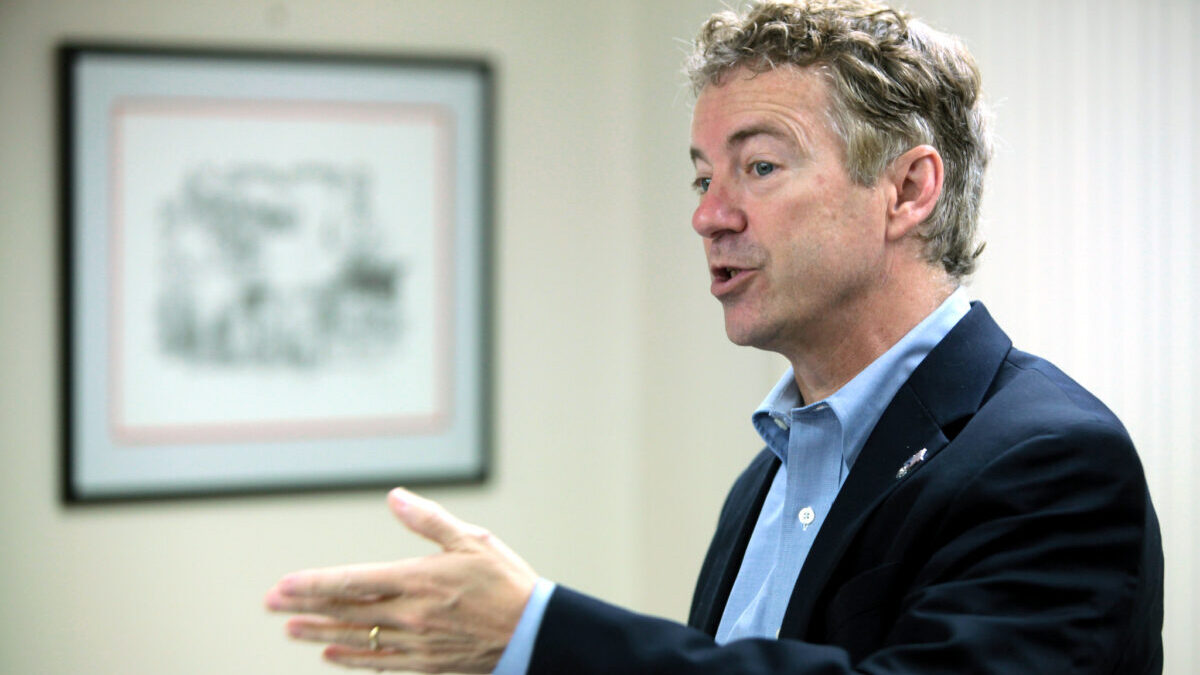If the recent assassination attempt targeting Supreme Court Justice Brett Kavanaugh weren’t sufficient proof that a divided America is tiptoeing toward violent conflict, a research firm released a “disturbing poll” showing that nearly half of male Democrats under the age of 50 believe it acceptable to assassinate a politician “who is harming the country or our democracy.” Given that James Hodgkinson nearly succeeded in assassinating an entire baseball field of Republican members of Congress just a few years ago, the appetite for continued political violence shows no sign of abating.
Sen. Rand Paul, who has suffered two violent, politically motivated attacks in recent years, called out the White House and congressional Democrats for “ginning up and encouraging” violence. However, in a country that increasingly eschews rational debate and embraces the vituperative soundbites of reality TV, it can be no surprise that the political stakes in America are tending toward bloodshed.
It was once widely understood in the United States that vociferous debate and vigorous policy disagreement were features of a healthy American society. Hashing out arguments over contested issues in the public square had two immediate salubrious effects: it allowed the average American to appreciate the “pros” and “cons” of consequential policy decisions, and it provided those whose viewpoints did not win the day to nonetheless speak their minds.
As a testament to how vital debate and disagreement are to the process of creating good public policy, it has often been the case throughout American history that the well-articulated arguments of the “losing side” eventually rise to guide future generations.
Lack of Free Debate
Of all the fruits that naturally grow from the variegated branches of free speech, its disposition toward counseling wisdom is perhaps the sweetest. In an age when the word “democracy” is thrown around indiscriminately by politicians who wish to clothe themselves in its virtuous connotations, it is society’s respect for diverse opinions and its willingness to engage those opinions with serious debate that truly provide the cornerstone of any democratic system.
Yet where does our nation stand today — on the side of free and muscular debate, confident that lively disagreement only strengthens America’s foundations? Or on the side of insular state-sponsored dogma that tends to smother the full range of voices naturally expected from a diverse society?
A quick tour of the major issues of the day provides the unsettling answer. It has become so dangerous to express doubts over the legitimacy of the 2020 presidential election that doing so can get one labeled an “insurrectionist,” “terrorist,” and “threat to democracy.” It has become so routine for news publications and social media companies to censor skeptics of anthropogenic climate change that they regularly shame as “deniers” those who question whether humanity’s use of hydrocarbons is truly an existential threat and whether the promised benefits of a Green New Deal would really outweigh the obvious economic costs.
During the worst of the Covid-19 lockdowns, citizens were denigrated as “anti-science” for expressing doubts about the effectiveness of lockdowns, mask mandates, or mass vaccination requirements, especially those targeting the young and healthy. Anybody hesitant after our deadly retreat from Afghanistan to recommit American military personnel and tax dollars to aid the government of Ukraine in resisting an invading Russia has been demonized as an anti-freedom, pro-Putin apologist. And Americans who have refused to snap-to and support men competing as women in women’s sports are denounced as “haters” and “bigots.”
Name-Calling Stamps Out Debate
Election integrity, government control over the economy through regulating energy, personal health decisions, commitment to war, and even our basic understanding of biological sex — these are not simple, unimportant issues with easy policy prescriptions. They hit directly at Americans’ personal autonomy, beliefs, and identities.
Yet it has become shockingly normal for Democrats and their allies in corporate media to refer to roughly half of the American people as “insurrectionists,” “climate deniers,” “anti-vaxxers,” “transphobes,” and even “Russian agents.” When name-calling replaces sincere debate and public shaming is weaponized to control acceptable opinion, the blessings of town square discourse are traded for the stench of the town latrine.
So what does it say about the current health of our nation that so many Americans seem unable or unwilling to respect opposing points of view? What does it say about our political leaders when they increasingly spurn public debate and vilify those with whom they disagree? What does it say about our institutions when they are quick to label those who protest government policies as “domestic terrorists”? What does it say about our prominent news publications when they declare certain debates “settled” or certain opinions “disinformation”?
This Is a Very Dangerous Path
It says, I believe, that we are advancing down a dangerous path in the United States, one that will only become more treacherous the more we refuse to “agree to disagree.” Silencing opinion to drown out noise will only cause greater animosity. Censoring dissent in order to fabricate “unanimous agreement” will only lead to bad policy outcomes. Demonizing adversaries as unworthy of consideration will only divide us more sharply.
Apart from the malodorous and un-American use of censorship, insult, and intimidation to manipulate public debate, increasing incidents of political violence are timely reminders why vigorous argument still serves this country best. If debate and disagreement are no longer understood as hallmarks of the American system of democracy, then that system will quickly go up in smoke. If individual Americans are treated as “domestic enemies” for their political beliefs, then spiraling violence becomes inevitable.









